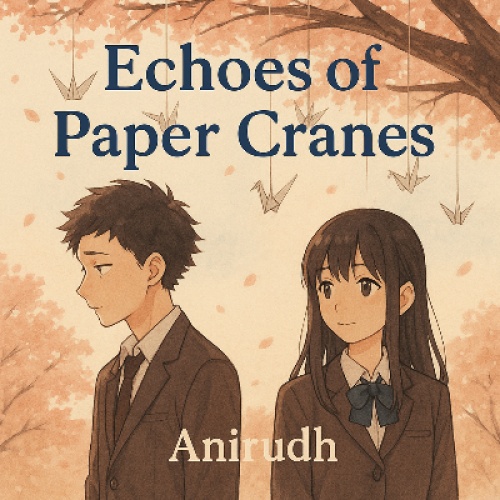Guilt weighed heavily on Ren. He stopped speaking, not out of defiance, but out of shame. His classmates stopped trying. His teachers pitied him. His world shrank to a gray blur of routine - school, home, silence.
Then, one spring morning, a new student transferred into his class: Mei Tsukino. She was deaf and carried a sketchbook where she communicated in drawings and short notes. Most students treated her with awkward politeness. Ren, however, felt an inexplicable pull toward her.
Mei noticed him watching her during lunch. Instead of ignoring it, she approached him with her sketchbook. She wrote:
"You don't speak either?"
He hesitated. Then nodded.
"That's okay. We can listen in other ways."
From that day, they shared a quiet companionship. They exchanged drawings, notes, and moments. Mei's presence began to stir something in Ren - a feeling he hadn't allowed himself in years: hope.
When she discovered his past, she didn't flinch or judge. Instead, she folded a paper crane and gave it to him with a note:
"One crane for one wish. Wish for a second chance."
Inspired, Ren began folding cranes every night, one for each apology he owed. He started to talk again - first in whispers, then in trembling words - to his classmates, to his teachers, and finally, to the friend he had hurt.
By the time summer arrived, Ren had folded over a thousand cranes. Mei helped him hang them in the old cherry blossom tree behind the school, each one a silent promise.
When the wind blew through the branches, it sounded like whispers of forgiveness.






